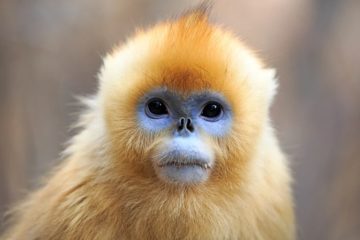Dyani Lewis in Nature:
 The largest ever study of primates has unveiled surprises about humanity and our closest relatives, providing insight into which genes do, and don’t, separate us from other primates. The huge international study has also yielded new data for a wide range of disciplines, including human health, conservation biology and behavioural science.
The largest ever study of primates has unveiled surprises about humanity and our closest relatives, providing insight into which genes do, and don’t, separate us from other primates. The huge international study has also yielded new data for a wide range of disciplines, including human health, conservation biology and behavioural science.
More than 500 species of primate exist today, including humans, monkeys, apes, lemurs, tarsiers and lorises. Many are threatened by climate change, habitat loss and illegal hunting. Researchers sequenced genomes from nearly half of all primate species, investigating more than 800 genomes from 233 species around the world, representing all 16 families of primate. The work has been published in a series of papers in Science and Science Advances this week1–10.
“The more we understand about primate genomics, the more we’ll understand about human genomics,” says primatologist Alison Behie at the Australian National University in Canberra. “There’s a potential there to do a lot more really interesting work as they grow that sample size to bring in more species.”
More here.
